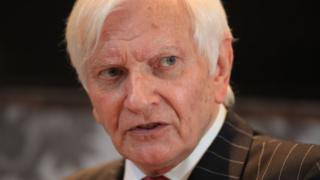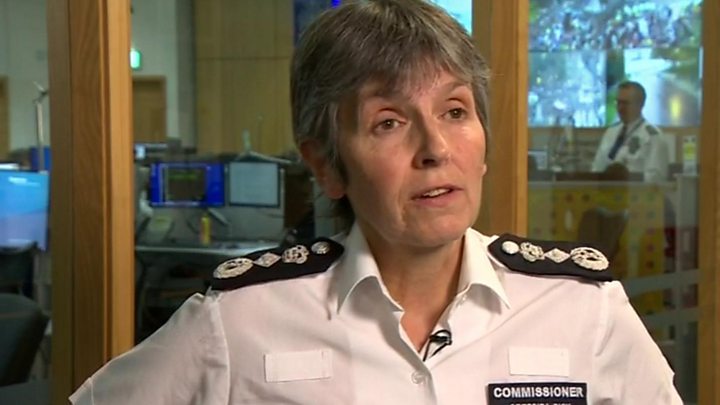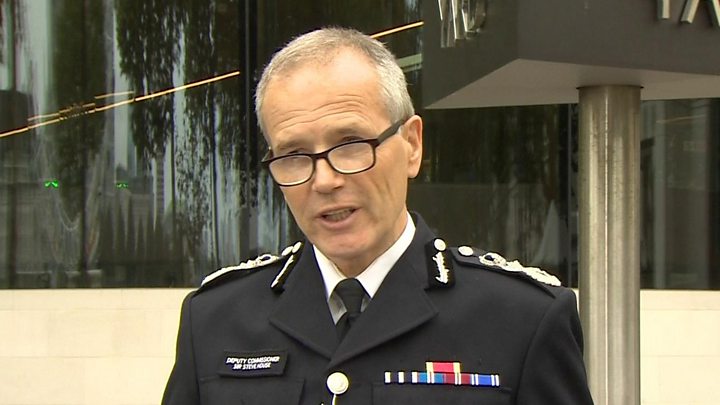Harvey Proctor calls for investigation into findings police ‘misled’ judge
Former MP who was falsely accused of being part of a VIP paedophile ring calls for an investigation. …

 Image copyright Danny Lawson/PA Wire
Image copyright Danny Lawson/PA Wire A former MP falsely accused of being part of a VIP paedophile ring has called on the home secretary to “act now” against the police who investigated him.
Harvey Proctor said an outside police force should be appointed to investigate findings officers “misled” a judge when obtaining search warrants.
The warrants led to raids on homes of high-profile men including Mr Proctor.
The police watchdog cleared the officers involved of misconduct.
The Metropolitan Police Service spent £2.5m investigating false allegations of sexual abuse and murder made by Carl Beech about a group of MPs, generals and senior figures in the intelligence services in the 1970s and 1980s.
The force publicly said they believed Beech’s claims to be “credible and true” but their investigation closed without any arrests and Beech – who was known as “Nick” during the police probe – was later jailed for his lies.
The investigation, known as Operation Midland, prompted searches of the homes of former Conservative MP Mr Proctor, D-Day veteran and former chief of the defence staff Lord Bramall and former home secretary Leon Brittan’s widow, Lady Diana Brittan.
The district judge who granted the search warrants in 2015 – Howard Riddle – has said he agreed with a report which concluded he was “misled” by detectives.
The report by retired High Court judge Sir Richard Henriques – which was partly published on Friday – found the warrants were obtained “unlawfully” and the searches “should not have taken place”.
Mr Riddle said he agreed with the report’s conclusion that he would never have granted the warrants if he had been given all the information available.
He said Sir Richard had identified a number of factors that undermined the case for warrants being issued “that should have been drawn to my attention, but were not”.

Media playback is unsupported on your device
The Met has not yet responded to Mr Riddle’s statement.
However, Met Police Commissioner Cressida Dick has said Sir Richard’s report found officers involved acted with “propriety”, while a police watchdog report cleared them of any misconduct.
“But if a High Court judge says it is unlawful, clearly, there’s something not right with what we did,” she told the BBC.
In an email to Home Secretary Priti Patel, released on Wednesday, Mr Proctor said the intervention of the two former judges was “unprecedented” and the “serious allegations of criminality” that officers misled Mr Riddle should be investigated.
“Failure to institute such a criminal investigation will rightly be regarded as a continuation of a cover up,” he wrote.
He suggested that Northumbria Police Constabulary should undertake such an investigation – at central government expense – because they already held much of the background information on the case from their role in the trial of Beech earlier this year.

Media playback is unsupported on your device
A separate report by the police watchdog examined the role of three detectives in applying for search warrants, but did not look into Operation Midland as a whole.
In July, the Independent Office of Police Conduct (IOPC) announced it had cleared the officers, prompting criticism from Sir Richard, who said a criminal investigation should take place.
In a report published on Monday, the IOPC found “gaps and shortcomings” in the police investigation but no evidence of misconduct.
Mr Proctor called the IOPC report “a whitewash” and “a pathetic attempt” to excuse mistakes by police.
Met Commissioner Ms Dick said she was “deeply sorry” for the mistakes made during Operation Midland and recognised the “lasting effect” on those who endured “intrusive inquiries”.
The home secretary has ordered an inspection of how the Met has responded to the recommendations made by Sir Richard and the IOPC.
Last week, Ms Patel wrote to the Chief Inspector of Constabulary, Sir Tom Winsor, asking him to examine the police investigation.
In her letter she said it was “imperative” the public received assurance the Met had learned from the mistakes identified in Sir Richard’s report.




